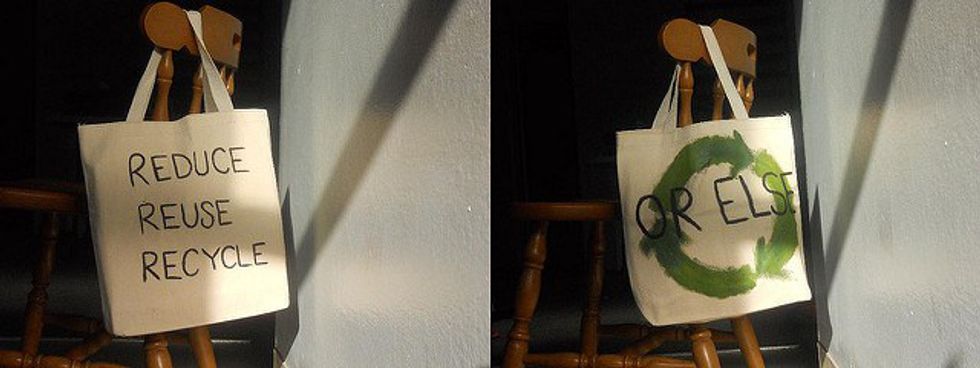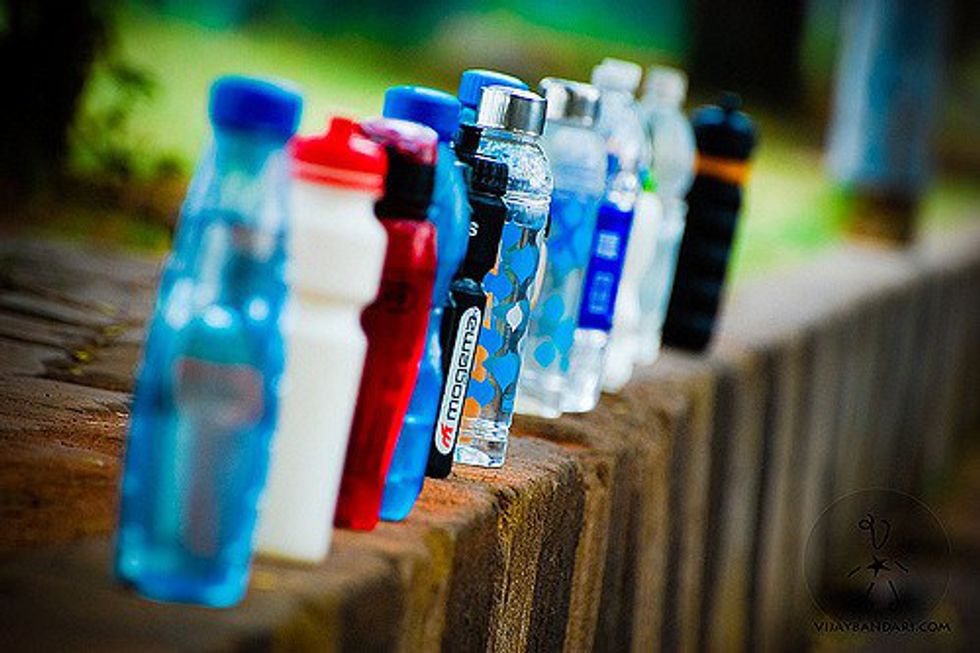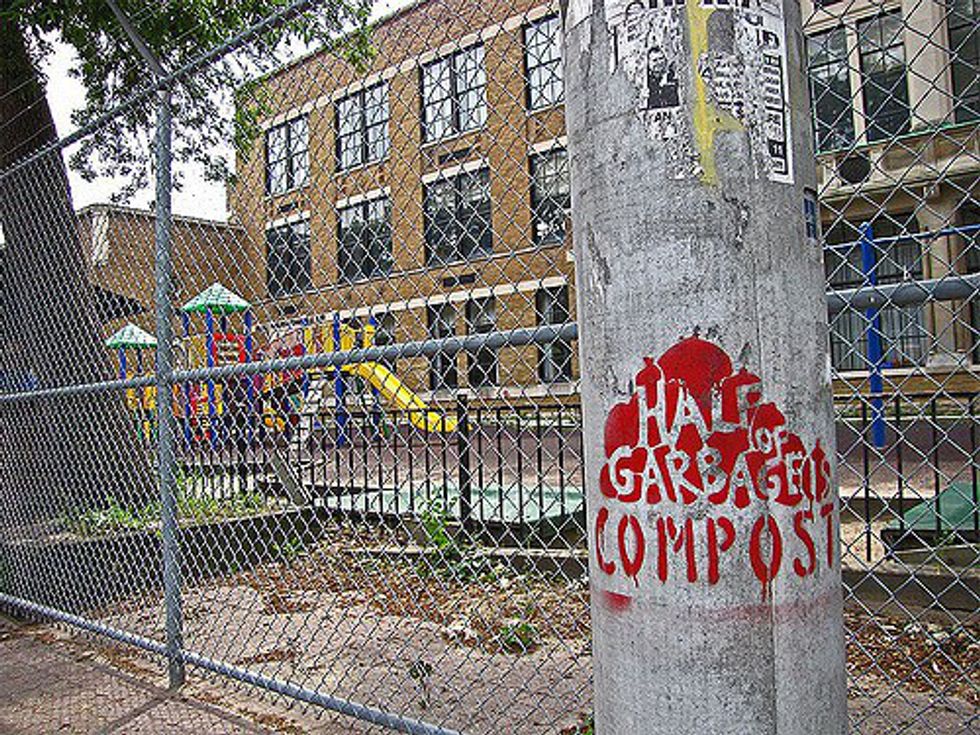One of the many flawed parts in the food system is that initial moment when consumers and goods come in contact with one another. Whether it's buying the food, preparing it, eating it, or throwing out the scraps, it's consumption that greatly affects the rest of the food system. Food habits are difficult to change, especially when we live in a society where options are abundant and because of it, people are encouraged to gather up all 100-something Oreo flavors known to man. Fixing the food system can't be done overnight either, but a step or two towards sustainable food consumption is better than none at all. Here are some ideas:
Remember the First Two R's
Out of the three R's, recycling is the most commonly promoted because it encourages people to continue to aimlessly consume, and as a result, obtain a false view that recycling is the answer to reducing trash and saving the planet. However, most items fail to be recycled. In 2013, the United States Environmental Protection Agency reported that only 34.3 percent of materials are recycled. Out of the 254 million tons of trash, recycled, and composted materials that Americans produce, only 87 million tons of that is recycled. We must realize that recycling is not the step towards better managing our waste, but it's one of the steps. Instead of picking and choosing one, the three R's must be viewed as a whole, as an entire process. Reduce first, reuse what can be reused, and recycle last.
Join the Reusable Bag Movement
Photo by Danielle Buma via Flickr
Yes, most plastic bags can be reused as garbage bags or kept in storage, but who needs an overwhelming pile of plastic/brown bags suffocating pantries and storage bans alike? Instead, carry a reusable bag with you. Bags come in numerous sizes, and most can be folded down to even fit your pocket. Whether you're picking up something small at the pharmacy or hauling a weekend's worth of groceries, reusable bags are the way to go.
Purchase a Water Bottle
Photo by Vijay Bandari via Flickr
Plastic bottles are presumed to have a life span of over 500 years and it's reported that 10-20 million tons of plastic end up swimming along and ruining marine ecosystems everywhere. So, not only will plastic bottles contribute to the destruction of marine life, but that stash of water bottles in your car will likely live to see the day your great-great-grandchildren create their own water bottle stack in their hover cars.
Value the Small Things
From choosing to dine in a restaurant rather than take out or choosing to buy in-store versus online, these small things can impact the way you generate waste; think about how much packaging material goes into ordering a tiny packet of anything on Amazon or the three or four components of a coffee cup, or even how much cardboard and paper is used to house a steaming batch of large fries. Whenever possible, do think twice about that age-old question: for here or to go? Even better, eat at home whenever you can.
Compost
According to a 2014 report by the Department of Sanitation in New York City, 31 percent of organic waste (food scraps, food-soiled paper, and yard waste) can be composted. It's basically free soil, so why pass it up? Although composting on your own does require space and equipment, you can always drop off your food scraps in local composting sites. Some examples of organic wastes that composting sites may accept include: eggshells, leaves, grains, wood shavings, nutshells, and even fish, meat, and bones. New Yorkers, here you go, get started and find a drop off site closest to you.
Pack Your Lunch
Not everyone has the time or the money to pack an elaborate bento box, but most people can pack leftovers. Or make a sandwich. Whatever it is you're having, packing your food will save you money and will reduce the straws, straw packaging, takeout boxes, brown bags, plastic utensils, unwanted napkins, and receipts you receive from your Seamless order.
Speaking of Plastic Utensils...
Channel your inner outdoorsman/outdoorswoman and invest in reusable utensils. Better yet, a reusable spork! Or you can opt for edible cutlery. Like the reusable bags, you can take it and use it wherever, whenever.
Learn How to Better Manage Your Trash
Consumption is unavoidable; we need to do so to live. But there's a better way to do it, and it's a learning process worth going through. You got this.



















